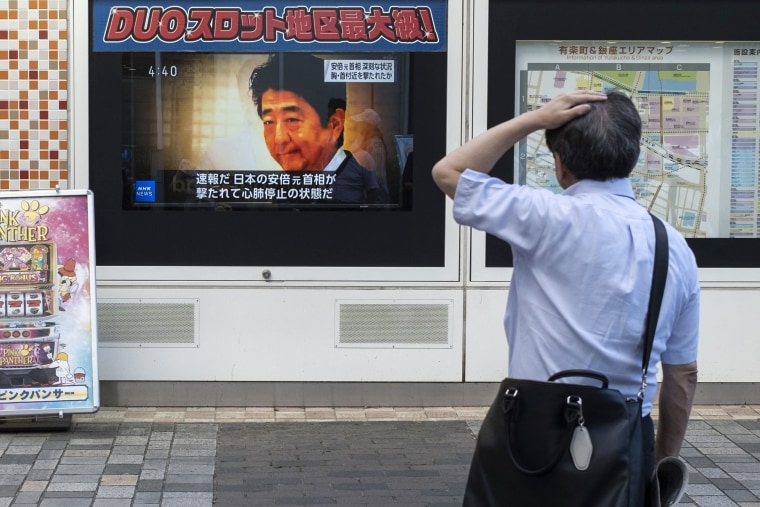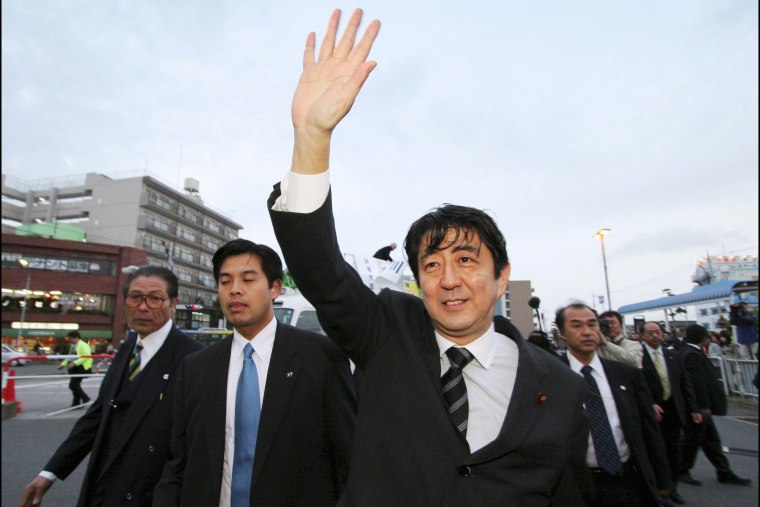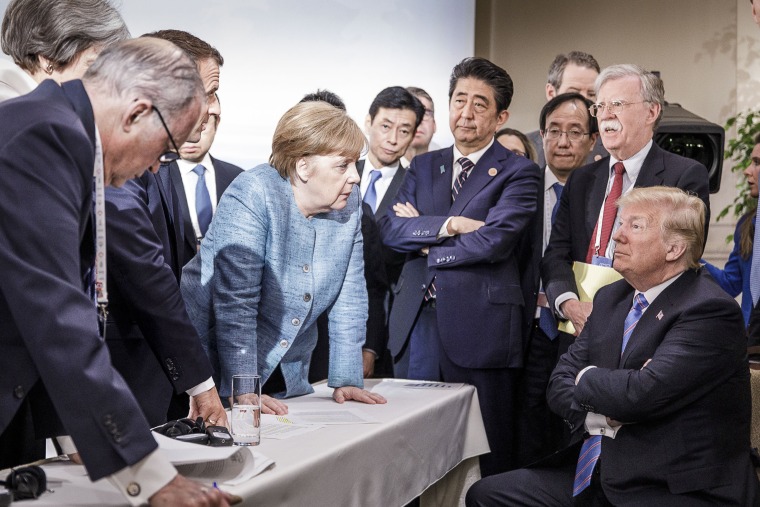TAIPEI, Taiwan — The assassination of Shinzo Abe, Japan’s totemic former leader, sent shock waves through the country and across the world on Friday.
A divisive but dominant figure, while in power Abe sought to tackle the country’s pacifist constitution and its struggling economy as well as elevate its standing abroad — particularly with the United States and its Western allies.
He was Japan’s longest-serving prime minister and remained one of its highest-profile politicians even after stepping down in 2020. Abe, 67, led the biggest faction in his governing Liberal Democratic Party (LDP) and was fatally shot while speaking at a campaign event.
Prime Minister Fumio Kishida, a fellow arch-conservative who had been campaigning in the country’s north, raced back to Tokyo on Friday upon news of the shooting.
“I am deeply saddened by the loss of such a great politician who loved this country, was always one step ahead of the times, and left behind great achievements in various fields in order to pave the way for the future of this country,” he said at an emotional news conference.
Jeff Kingston, director of Asian studies at Temple University Japan in Tokyo, said the country was “grieving the loss of a political giant.”

Abe was the latest in a family line of big political players. His father served as foreign minister, while his grandfather and great-uncle were both prime ministers.
A mainstay of contemporary Japanese politics, Abe first served as prime minister from 2006 to 2007. At 52, he was the youngest person to hold the office since World War II. He is credited with reviving the LDP after an electoral thrashing in 2009, imbuing it with his brand of conservatism. He returned as prime minister in 2012 and served to 2020, when he again resigned citing health issues.
Abe’s later years in office were marred by political scandals in his party and accusations that he fumbled the country’s response to the Covid-19 pandemic, his popularity waning as a result.
But that longevity stood out in a country that had five leaders in as many years before his return and is now on its second prime minister since Abe stepped down.
Abe fought to revive Japan, which had suffered stagnation since the crash of 1991. His time at the helm of the world’s third-largest economy was characterized by his “Abenomics” cocktail of fiscal stimulus, monetary easing and structural reforms.
Tobias Harris, author of “The Iconoclast: Shinzo Abe and the New Japan,” said Abe was “just a tremendously powerful and influential figure even after leaving office,” with his economic and foreign policies still largely in place.
“It’s been very hard for anyone to come up with anything better,” said Harris, a senior fellow at the Center for American Progress, a liberal think tank in Washington.

Abe pushed for constitutional change to revise pacifist laws passed after World War II to allow Japanese troops to fight abroad in collective self-defense to protect an ally.
“I think he deeply regretted he was never able to accomplish that,” Kingston said.
Though seen as less hawkish than Abe, Kishida appears to share his security goals, especially after the Russian invasion of Ukraine.
“One of the repercussions of Abe’s assassination I think will be a powerful sympathy vote for the LDP, and that will strengthen Kishida’s hand in trying to pursue that agenda,” Kingston said.
Abe sought to promote Japan’s image abroad, spearheading the country’s bid to host the 2020 Olympics and seeking to bind it more closely with Washington and its allies in the Indo-Pacific.
He argued that Japan was in a dangerous world and its own neighborhood was getting riskier amid North Korea’s weapons advances and China’s military modernization.
He took a hard line against China, evincing strong support for Taiwan and advocating the Beijing-claimed island’s participation in international organizations. Taiwanese President Tsai Ing-wen on Friday described Abe as “not only a good friend but Taiwan’s steadfast ally.”
Tensions between Beijing and Tokyo were strained by Abe’s 2013 decision to visit a controversial shrine to the Japanese war dead, becoming the first prime minister to do so since 2006. Both China and South Korea consider the site to be a memorial of war atrocities committed by the Japanese in World War II.

Abe prioritized the U.S.-Japan alliance, becoming the first foreign leader to meet with Donald Trump after he became president-elect in November 2016. In a post to his Truth Social platform late Thursday, the former president called Abe “a truly great man and leader.”
“He was a true friend of mine and, much more importantly, America,” Trump said. “This is a tremendous blow to the wonderful people of Japan, who loved and admired him so much.”
Trump threw Abe a curveball in 2017 when he withdrew the United States from the Trans-Pacific Partnership, a proposed trade agreement with 11 other Pacific nations. Under Abe’s leadership, Japan took the lead in crafting a successor agreement that does not include the United States.
Abe was also a driving force in the resurrection of the Quad, an informal security grouping made up of Australia, India, Japan and the United States, as he sought to promote American engagement in the Indo-Pacific region.
His efforts to make Japan a more robust presence in global affairs and his nationalism at home meant Abe had his share of critics.
“He was aggressive in his posture, he was always pushing for the things he wanted [and] was not necessarily the best listener,” Harris said. “That was just not his style of politics.”
But Japan is not especially polarized domestically, he added, as shown by the continued rule of his right-wing party. While there has been opposition to Abe, Harris said, “it was not with the kind of heat that would lead you to think that something like this could happen, and certainly not nearly two years after he left the premiership.”
“This is just such a bolt from the blue,” he said, “totally unexpected.”
Rhoda Kwan reported from Taipei, and Jennifer Jett from Hong Kong.
CORRECTION (July 8, 2022, 9:45 a.m. ET): A previous version of this article misstated in the text and a caption the historical significance of Abe's first term as prime minister. At 52, he was the youngest premier since World War II, not the youngest ever.